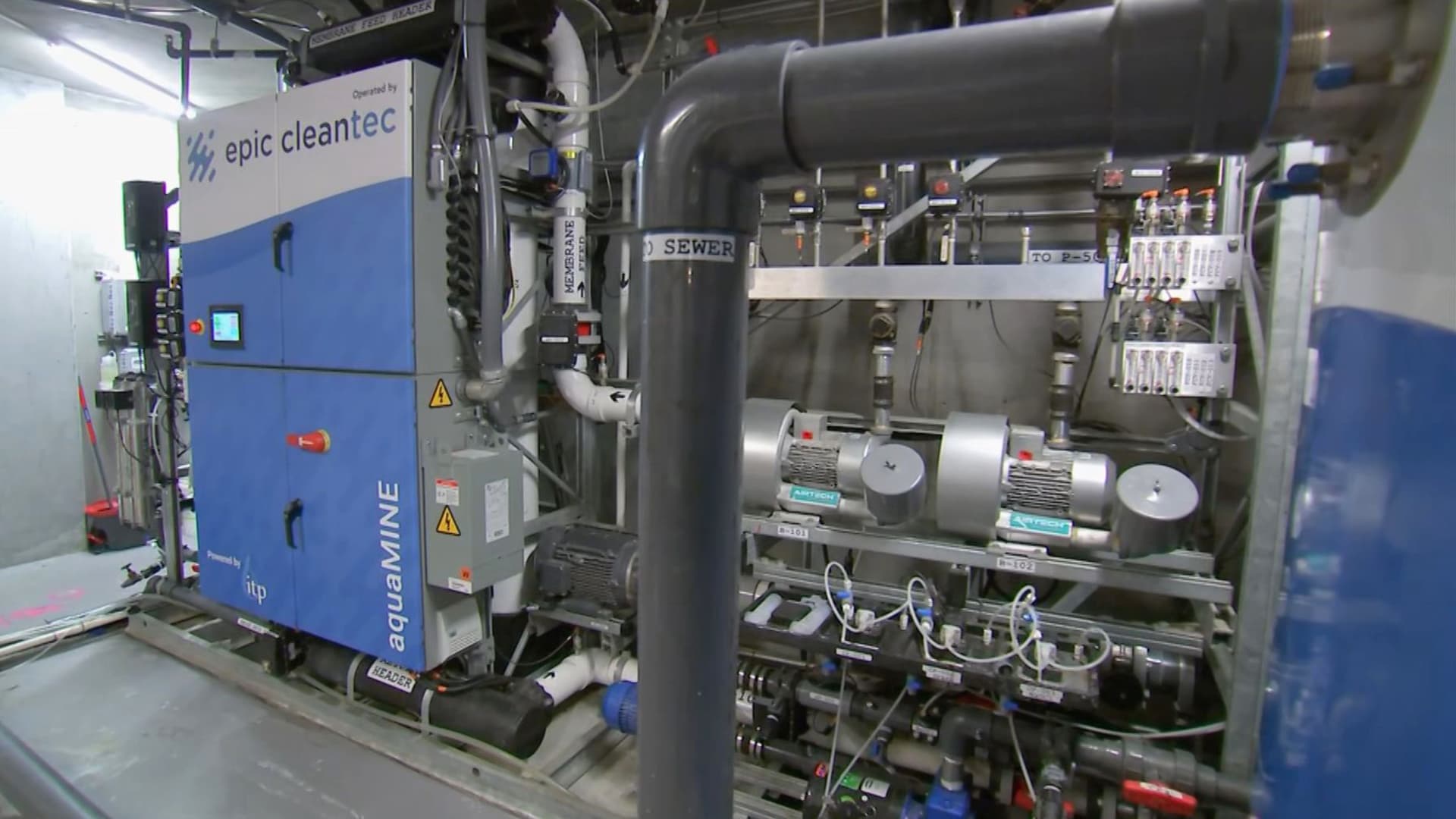
The bulk of water recycling now happens at centralized wastewater treatment plants, requiring thousands of miles of pipelines to move the water. This practice is neither efficient nor cheap. But as more municipalities begin to require water recycling in commercial and residential buildings, companies are stepping up with new methods of on-site water recycling.
San Francisco-based startup Epic Cleantec is one of them. It is attempting to move the water industry to a “circular approach,” according to its founder, by helping buildings recover and reuse wastewater on site. The company’s system removes solids from wastewater and turns them into soil, then treats the water to be clean enough for uses like toilet flushing, irrigation, cooling towers or laundry. It is not clean enough to drink.
“We are capturing all the dirty water that you would normally send into the sewer, and we’re turning that into clean water, into soil, and into recovered wastewater heat,” said CEO Aaron Tartakovsky. “We are helping these buildings to recycle up to 95% of their water so that is 95% less fresh drinking water we have to pull in from the city supply, and we can instead recycle water right on site, right where it’s produced.”
Tartakovsky argues that the “flush and forget” society needs an overhaul, as climate change produces more severe and prolonged droughts. The American West is in the midst of the worst drought in 1,200 years, according to a recent report published in the journal Nature Climate Change.
“We are going to be saving folks on their water and their sewer rates. And we typically aim to give buildings a return on their investment of under seven years,” he added.
San Francisco recently passed a law requiring every new building over 100,000 square feet to have a water-recycling system. There are similar requirements in Los Angeles, and programs like it are cropping up in Denver, Austin, Texas, and New York City.
That’s the reason why Related, a major national real estate developer and landlord, is using Epic. Its water-recycling system was installed at 1550 Mission, a 39-story, 550-unit apartment building in San Francisco completed in 2020. The building can now reuse over 2.5 million gallons of water every year, according to Related. That’s 2.5 million gallons it does not need to draw from the city’s water supply.
“Water conservation being such a critical issue, it’s actually a really great value-add to our design proposition and something that residents look for, for our buildings to be sustainable,” said Phoebe Yee, an executive vice president of design at Related California.
Residential water and sewer rates in the U.S. have outpaced inflation by nearly 300% over the last two decades, while growing urban populations are straining the aging municipal water infrastructure.
“We definitely see it as a cost-effective system in the long run, and since we are developing for the long term, those are important considerations,” said Yee. “There is always an initial cost that goes in, and that’s our investment, and because we own our buildings and operate them for years and years, the payback is important.”
Epic Cleantec is backed by J-Ventures, J-Impact, Echo River Capital and LL&P, Inc. It has raised just over $13 million to date.




